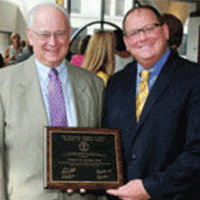North Java DUI-DWI Lawyer, New York
Sponsored Law Firm
-
 x
x

Click For More Info:
-
Law Office of Mark S. Guralnick
55 Madison Avenue 4th Floor Morristown, NJ 07960» view mapCriminal Defense Law Dedicated. Fearless. Successful.
Mark S. Guralnick and his legal team have helped clients throughout the USA and across the world by applying unparalleled dedication and hard work to each case.
800-399-8371
Dominic Paul Candino
✓ VERIFIEDCriminal, DUI-DWI, Felony, Accident & Injury, Personal Injury
Personal injury and criminal law is a complex collection of ever-changing legislation and case law. Many of those injured by a third party's negligen... (more)
Karl Martin Myles
✓ VERIFIEDCriminal, DUI-DWI
My Web designer told me that I had to provide him with more information on myself to explain to people better who I am. Specifically he said for me to... (more)
Cory James Missell
Criminal, DUI-DWI, White Collar Crime, Misdemeanor, Felony
Status: In Good Standing Licensed: 16 Years
Dominic H. Saraceno
Sexual Harassment, White Collar Crime, DUI-DWI, Criminal
Status: In Good Standing Licensed: 24 Years
Melanie Catherine Marotto
Real Estate, Immigration, DUI-DWI, Accident & Injury
Status: In Good Standing Licensed: 32 Years
Thomas Francis Keefe
Commercial Real Estate, Estate Planning, DUI-DWI, Contract, Criminal
Status: In Good Standing Licensed: 32 Years
 Mark Guralnick Morristown, NJ
Mark Guralnick Morristown, NJ AboutLaw Office of Mark S. Guralnick
AboutLaw Office of Mark S. Guralnick Practice AreasExpertise
Practice AreasExpertise


